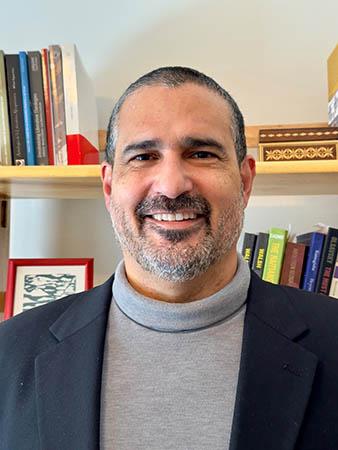Combative Decoloniality and the Abolition of the Humanities
–
Robert A. Jones '59 Conference Room148 Hillcrest Road
Middlebury, VT 05753 View in Campus Map
Open to the Public

Building from the approach to decolonization and abolition in the Haitian Revolution as well as from Frantz Fanon’s view of combative decolonization and decoloniality, the presentation makes the case for the abolition of the humanities as a crucial component of the project for decolonizing knowledge today. The humanities, along with the entire project of the liberal arts and sciences, have demonstrated their limits in multiple ways, including in the systematic misunderstanding and mishandling of Black Studies, Indigenous Studies, Ethnic Studies and related fields for over half a century. This presentation calls for the proper understanding and the proliferation of counter-humanities and other-than-humanities epistemic, artistic, and spiritual expressions that challenge coloniality. In them, one also finds an affirmation of the combative decolonial dimension that led to the emergence of Black, Indigenous, and Ethnic Studies in the first place.
Presented by Nelson Maldonado-Torres, professor of philosophy at the University of Connecticut. Professor Maldonado-Torres’ full bio can be found here: https://philosophy.uconn.edu/person/nelson-maldonado-torres/
Also co-sponsored by: Axinn Center for the Humanities; Pedagogy Enrichment Fund; Academic Enrichment Fund
Contact Organizer
Kervick, Elizabeth
ekervick@middlebury.edu
443-5565

